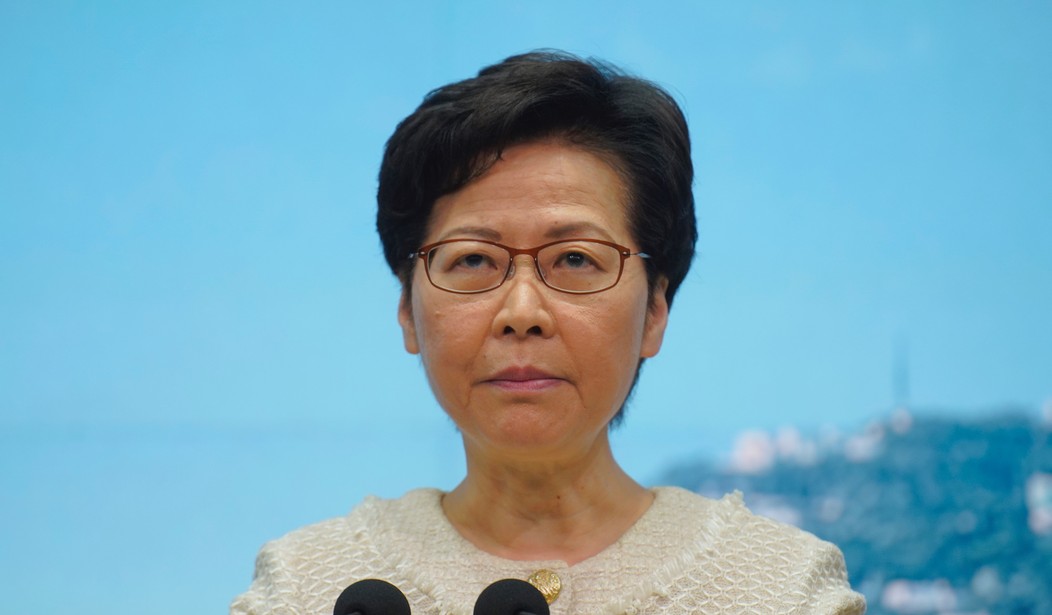In many countries around the world, governments have slowly but surely been coming to the realization that they are just going to have to learn to live with the novel coronavirus and find a way to move on. Of course, some are slower than others, while acting suspiciously like they’re enjoying the nearly unlimited autonomous powers that come with a declared state of emergency. (And yes, I consider many parts of my own government in the United States as falling into that category.) But the same isn’t true everywhere. Just this week, the puppet government in Hong Kong reiterated that it will continue with a “zero-COVID” tolerance policy, keeping the borders closed and the citizens greatly restricted in their movements. They’re setting a goal of 95% of citizens being vaccinated before things can return to “normal,” but they are nowhere near that level yet. And many businesses, particularly the ones owned by foreign interests, are running out of time, patience, and cash. (CNBC)
Hong Kong needs to stick to its zero-Covid strategy until more people are vaccinated, a government advisor told CNBC on Wednesday.
“If 95% of our eligible population are being vaccinated fully with three doses, then the chance is that we are able to open our border,” said Yuen Kwok-yung, who is part of Hong Kong’s expert advisory panel for Covid-19.
The Chinese city is far from reaching that target. Only 68.6% of the total population has received two doses of a vaccine as of Wednesday, according to government data. Some 322,781 people, or around 4.4% of the population, have received their third shot.
Hong Kong is something of an outlier in this sense. Back in October, even New Zealand, long the reigning champion of zero-tolerance and endless lockdowns finally threw in the towel and admitted that they were going to have to find a way to learn to live with the virus. In the United Kingdom, Boris Johnson finally saw the political writing on the wall and refused to go back to the strictest levels of restrictions despite the rapid spread of Omicron in his country.
As the Washington Post reports this morning, “talent is leaving Hong Kong in droves.” Companies had already been growing frustrated with their inability to conduct normal business in the city with all of the restrictions that remain in place. With opportunities in more “normalized” nations offering tempting destinations, the rationale for staying put is now greatly diminished.
What seems to be mentioned less often in the MSM coverage of this story is the fact that businesses had already been looking at fleeing Hong Kong long before the Omicron variant blew into town and the reasons had little to do with the pandemic. China completely controls the government of Hong Kong now, along with having eliminated nearly all vestiges of Democracy from the city’s elections and normal governmental functions. It’s no longer possible to engage in the normal ebb and flow of capitalist operations and the ability to do business at all relies on strict compliance with the mandates coming from the Chinese Communist Party in Beijing.
In a broader sense, this also explains the “zero-tolerance” policy regarding COVID in Hong Kong. It’s the same approach that China has been taking on the mainland, so the government of Carrie Lam will obviously reflect those decisions in her own policies. And let’s face it. When it comes to authoritarian practices and restricting the rights and freedoms of citizens, that was already pretty much a cornerstone of Chinese governance long before the novel coronavirus emerged. It’s not breaking their hearts to do even more of it now.
For the rest of the world, however, that sort of approach just isn’t going to work in the long run. And it’s not going to work in America, either. Even in New York, one of the most restrictive states in the nation in terms of COVID policies, the new governor was careful not to do anything to further dampen the economy, even as she reintroduced indoor mask mandates and immunity passports. Personally, I’m curious to see how well many of these politicians fare next November. I’d originally thought that a return to law and order would be one of the biggest drivers in the midterms (and it still likely will be) but the leaders who were far too free with their executive order pens and mandates may have some things to answer for as well.








Join the conversation as a VIP Member